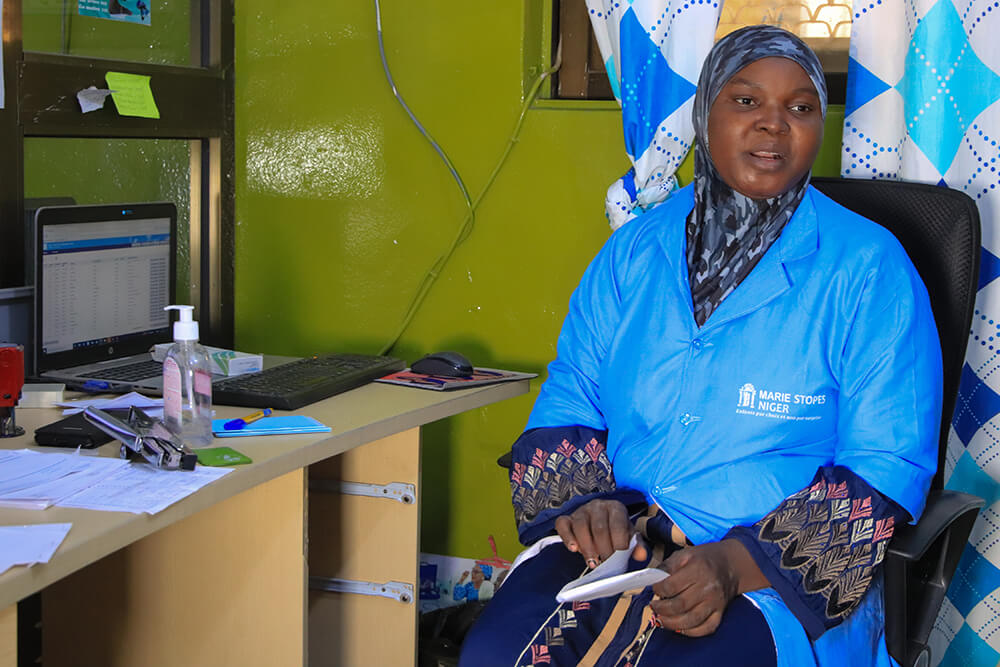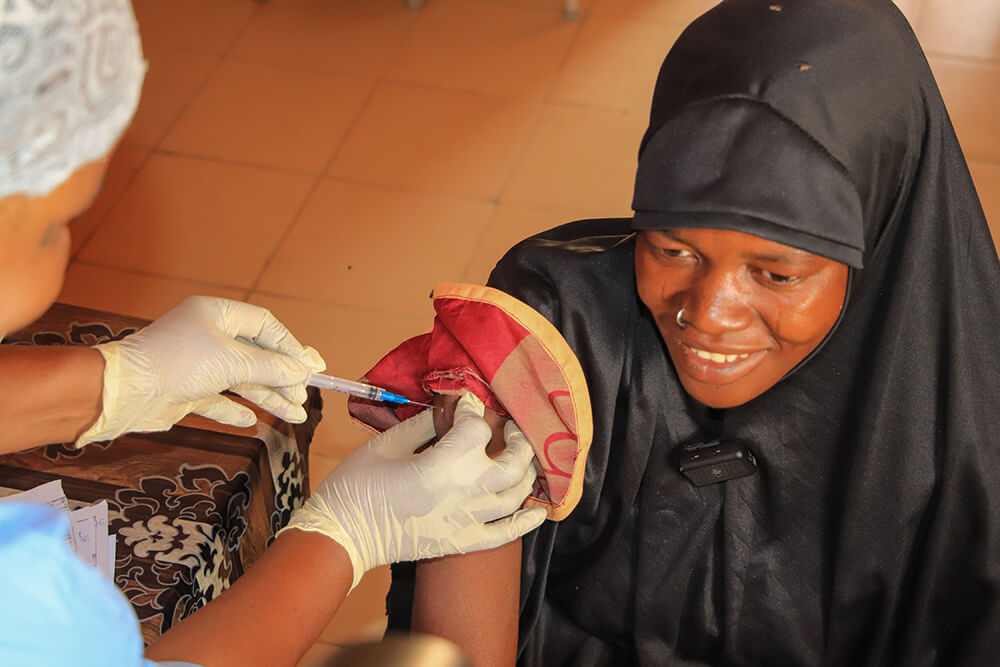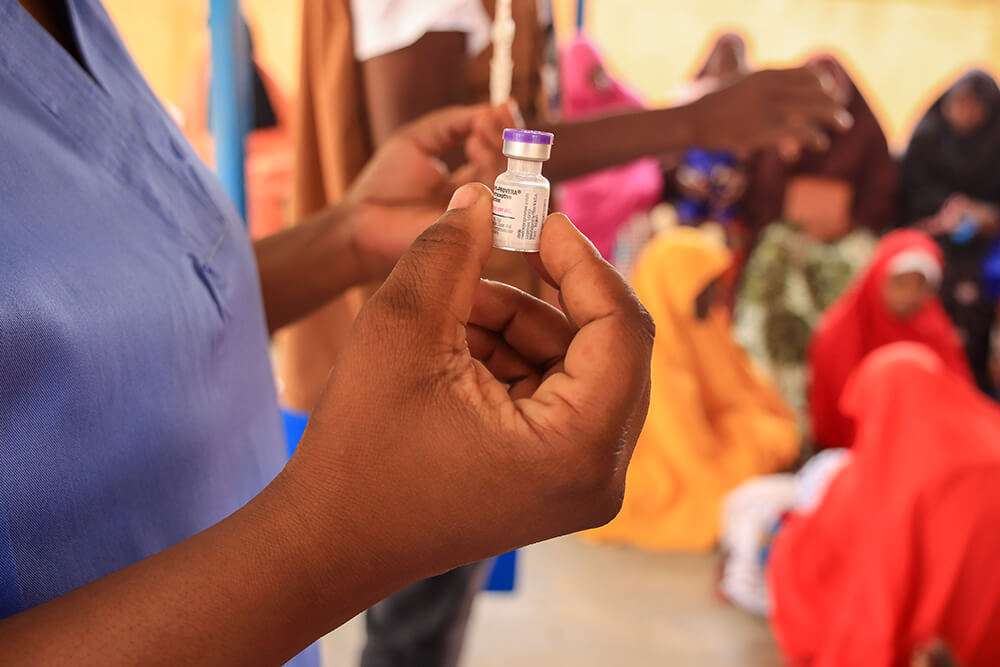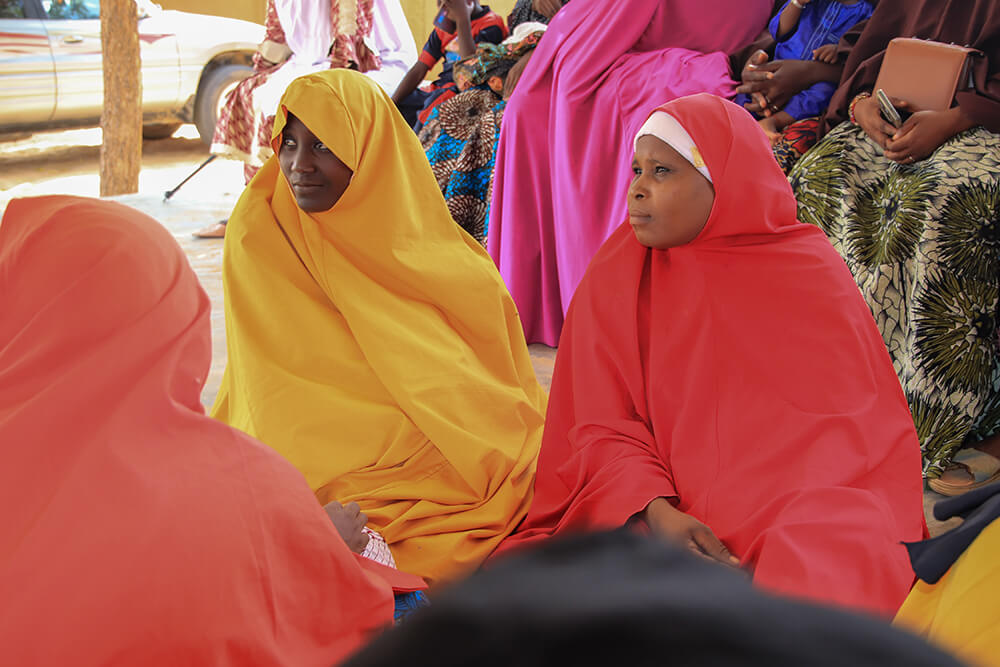In Niger, Dr. Abdoulaye is changing attitudes
On a sunny day in rural Niger, dozens of women in colorful headscarves are gathering. Children in tow, they’ve made the journey to this small health outpost – some traveling hours on foot – to see MSI doctor Abdoulaye Apollinaire and her colleagues.
Dr. Abdoulaye, whose adolescent clients call her “auntie”, is a trusted figure in this small village. In communities where using contraception is often still stigmatized, she’s changing minds—and giving women the chance to take control of their health and their futures.
Making child spacing normal
In Niger, contraception is still taboo. Only about 11% of women are using a modern contraception method. One reason is that many people think that using contraception means never having children again, an unacceptable idea in a culture that values large families.
To combat this perception, Dr. Abdoulaye often speaks about contraception as a tool for spacing children, not preventing pregnancy forever. “You take a specific amount of time, rest, save money, and then you are ready for a new arrival in your life,” she explains.

Dr. Abdoulaye will go anywhere to make the case because she knows that longer gaps between pregnancies have enormous benefits for women’s health, and for their children. “We organize family gatherings or participate in social events, like baptisms, to raise awareness among our cousins and sisters about family planning,” she explains.
They also conduct awareness sessions outside of service sites like the one she’s visiting this day. While nurses register clients and begin individual appointments, the women waiting see a presentation about the different kinds of contraception available. When they’re ready for their own appointment, they’ll have a better sense of what their options are, and Dr. Abdoulaye will answer any questions they have about the various methods and their side effects.
“Child spacing methods are really helping us”
One young woman waiting for her appointment is 22-year-old Choukourya. A married mother of two young daughters, she started using the contraceptive injection after her first child was born, then resumed it after her second.


“I was happy with the idea of child spacing, so I opted for it,” she says. “After my second child, I continued with the injectable, as I didn’t experience any problems. These child spacing methods are really helping us.”
Now, with her baby snug on her back, she’s back for her once-every-three-months injection. She explained why the idea of a longer gap between pregnancy made sense for her family. “Imagine having a child who is still breastfeeding and then having another one almost immediately. This might cause a lot of problems. With child spacing, parents can provide each child with the proper care they need to grow healthily before having another.”
“Thank you, auntie, you’ve helped me a lot”
Dr. Abdoulaye is particularly passionate about helping her younger clients: Adolescent girls for whom contraception can be the difference between finishing secondary school or dropping out due to pregnancy.
“Every time I provide these services to adolescents, they say, ‘Thank you, auntie, you’ve helped me a lot,’” she says proudly.

In her years serving communities in rural Niger, Dr. Abdoulaye has seen firsthand the terrible consequences when girls aren’t informed about their sexual and reproductive health.
“One client who left a strong impression on me was a 12-year-old girl brought by her mother because she was pregnant. The boy involved was just a student. We recommended contraception to prevent another pregnancy. They agreed, and after she delivered, we inserted a 5-year implant.”
The girl’s mother was grateful for the help—but not everyone in the family knows the girl started using contraception. “The mother says if her husband finds out, he’ll throw her out. She doesn’t know where she’ll go if he does. It’s a common issue here.”
Going further to make choice possible
In the face of continued stigma, Dr. Abdoulaye continues to raise awareness about contraception and the importance of child spacing—at family gatherings, on clinic outreach days, wherever she gets the chance. She feels confident that attitudes are changing for the better.
“I’ve seen significant change. The impact is huge because now women can make their own choices, pick the methods they want, and explain them to their sisters. One might say, ‘I went to MSI, and they explained everything to me; you should go too.”





